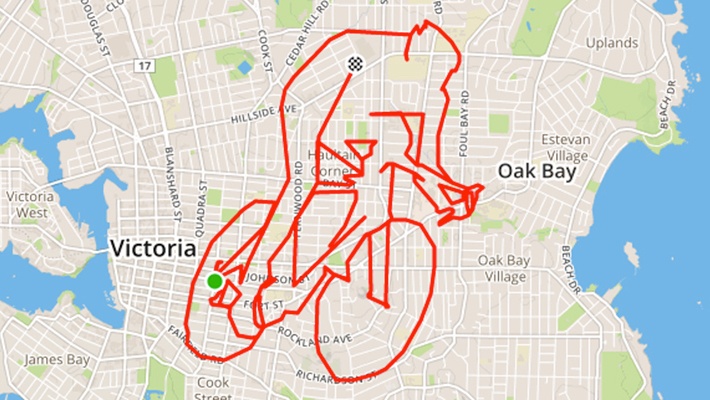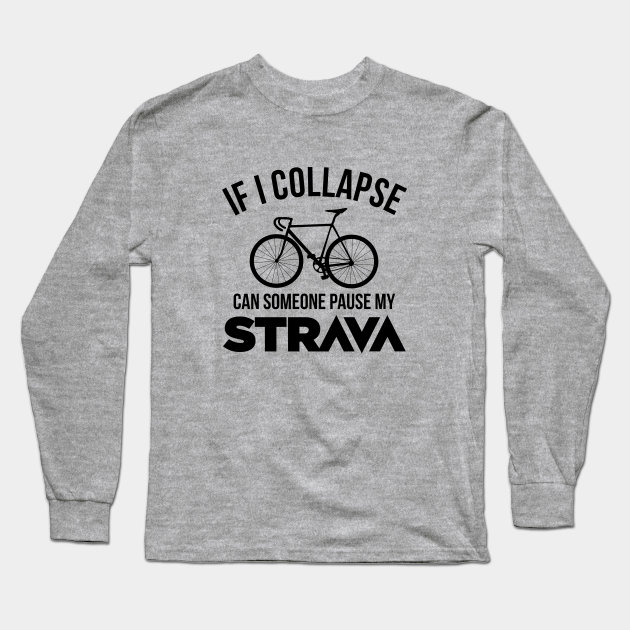Marsden Racers // Running and Cycling club in Huddersfield
Written by Sinead Battarbee // 15th June 2021
This is something that has intrigued me for a long time. With the rise of Strava, and following research on a current work project, I have found myself looking into the complex relationship we have with apps such as these. Their primary focus is to provide analysis for training. However, exposing activities to an audience and promoting accolades for training whilst providing ‘rewards’, could result in ‘deemed’ pressures and unhealthy behaviours. It certainly started that way for me!

Why Apps are a good thing
There have long been performance measuring tools to analyse, tweak and monitor how we perform and track our training. Back when I was running for Yorkshire at the 400m, we had very basic ways of monitoring training and it was very analogue in approach. Heart rate monitors were used, but it was generally done by our coach pouring over times recorded from our track sessions, with very rudimentary heart rate tracking.
Now, with advancing technologies, beginners can download an app and suddenly have access to all this data that can be really overwhelming and seemingly nonsensical. Grade Adjusted Pace, Heart Rate, RPE (Rate of perceived exertion), RPM (Revolutions per minute) and Cadence, are terms most people haven’t heard of, never mind be able to analyse into some meaningful format to improve their performance.
STRAVA MADE THIS ANALYSIS FUN!
Strava, was not the first to add a social spin to training applications, but it is definitely the pioneer. It turned training into a game, where we could measure our progress and success in much easier ways… Segments and Kudos.
“Am I the fastest person to run on that segment, have I improved the times from my last run, have people commented and given me kudos, Julie went out earlier, so that makes me feel like I need to stop being lazy and get out! “
What a great motivational tool and continues to be.
I will always use Strava, but my relationship habit has changed over the past 2 years because of how it started to affect my mental health and how I saw my training, It eventually took my enjoyment away from the sport I loved. So I wanted to share a little experience; both personal and research-based I have found while building a prototype application using Strava API.
If it’s not on Strava, it didn’t happen
This is one of the most common turn of phrases to hit the running and cycling world with the rise of the app. Memes such as “If I collapse, stop my Strava”, although amusing, do seem to have a more sinister undertone. It appears they are recognising a growing obsession to make sure our activities are tracked so others know what we have done or achieved, but is this a problem?

Studies have found a correlation between the increase in physical activity and using social applications. A study at the Flinders University (Nov 2019 – click here) found of the 1432 Participants , 53.1% used such applications, Furthermore, they found that:
The use of physical activity apps was significantly associated with physical activity. Notably, the use of app-specific communities and existing social networking platforms facilitated significantly greater engagement in physical activity
Well, that’s great, isn’t it? More people are training, and are more likely to train! Cannot argue with that! However, other behavioural studies have looked more into the actions of the participants and how the apps are altering self-consciousness about their activity.
A study conducted by Sociologists Shankar, Pietz and Spotswood in 2020, looked at underlying behaviours of people who track their activity and while finding positivity in levels or increased activity, this seemed to come at a cost to mental wellbeing:
For public health, communal self-tracking has been explored for the additional benefits it provides in addition to self-knowledge. However, under-explored is the emotional entanglement of self-tracking and tracked activities, or the role of practitioners in the dynamic evolution of tracked practices…….
We find that communal self-tracking affords the active shaping of the emotion and purpose of running. This ‘teleoaffective shaping’ allows practitioners to negotiate and reconstitute appealing meanings associated with running to protect their practice loyalty. We identify three mechanisms for teleoaffective shaping afforded by Strava: labelling, reward and materialising effort.
The term “Teleoaffective” refers to how emotions affect practice. This study is interesting as it highlights that apps like Strava uses labeling, reward and materialising effort to re-frame how participants start to see their activity. One of the study’s architects further reviews this by adding:
In our study, runners would self-track, post and share their data in a highly routinized way. Their postings would prompt a number of responses, from comments to ‘kudos’ (a thumbs up, a bit like a Facebook ‘like’) to detailed conversations about training plans and future events, races and goals. We found that these social interactions worked to shape practitioners’ relationship with running, indeed to shape the very nature of running itself. Collectively, self-trackers would work at the anticipated emotions that were to be expected during future runs, and shape the purpose of running itself. Runs which would in reality have been cold, dark and alone, became valued, social and rewarded as runners anticipated the feedback and validation they would receive once the run had become tangibilised as data via Strava. So perhaps we can extend the sense that ‘if it’s not on Strava it didn’t happen’ to ‘if it’s not on Strava it doesn’t matter’. Mattering is an important facet of everyday practices.
Fiona Spotswood: https://www.digitalsocieties.co.uk/blog/self-tracking
So are we now in danger of adjusting our training in a more socially pleasing way?
Are we training, or content writing?
So are we adjusting our activity to get more acclaim? For me, A few years back, I fell into this trap. I was uploading the minute I got home, pouring over the segments… how had I done, could I do that bit quicker, where does it start and end, right will get that tomorrow. Who has given me kudos, what was my average time (oh no, slower than usual so better put a title that explains that in far more detail than is necessary)…. Is any of this sounding familiar?
I was content writing my own training for the sole purpose of an online audience. I wasn’t focusing on the fact I was constantly getting injured, my mental health was getting a battering. Not to mention that I was now developing a very unhealthy relationship with the sport I used to use for some personal headspace and enjoyment. After injuring myself on a run, and being told I could not run for at least 1 month (Suspected Avulsion fracture and ligament damage), I felt lost. It sounds ridiculous, but I had become so engrossed in this competitive online world to prove I was a ‘good runner’, I really didn’t know what to do, how to adjust. I spiralled a little. I took great misery in my injury and felt unworthy as any type of runner.
I started to realise, I had fed off the recognition of being a runner. I was never motivated by Kudos, my battle was always with my internal self and striving to be better, but within that became a need to be seen socially as a runner (I know, daft right?). It wasn’t until the inevitable “Uh-Oh’s, you have lost your crown” began while I was resting up, that I started to really look at my relationship with running and the application I was using in more detail.
Here are a few things I found:
- I was labelling almost 100% of runs in a negative way. This felt like I was always making an excuse rather than learning and taking positives. In addition, being concerned people may think I had got slower… God forbid!
- I was too concerned with other people’s training. In the sense that if I saw a club member out, I used to think “Urgh, better get out and do 10 miles” … even if my body was crying out for rest.
- How other people used my data against me. People were targeting my “crowns” in a bid to get their own accolade.
I found the third one had probably the most effect on me, as I never used Strava in that way. After a wave of being hit by constant “Uh, Oh’s” I decided to look a little deeper into these efforts. I found that the runners who were taking “crowns” from me, were running to the segments in almost a jogging fashion, then sprinting to get the segment, before stopping shortly after for a rest. For me, this ruined the integrity of segments and made them worthless. If there was a 50m segment at the end of the Great north run, and Mo Farah was top of the leader board after running the other 13 miles in a record time, where is the acclaim for someone walking up to this segment and sprinting it to beat him? Does this set you as a better runner than him? No, it just starts to devalue any legitimacy in the rankings and will eventually make them unachievable and irrelevant. For me, this was the problem. True ability and sportsmanship rely on fair play and integrity. Once this was removed, I stopped using the app to focus on social accolades and using it for personal analysis once more.
But, I was intrigued by the motivation behind the behaviour of ‘Segment hunters’, and people who are constantly providing kudos and comments to other runners. Are people genuinely finding positive motivation or was this going to result in a similar ‘crash effect’ that I had?
Is there a wider need for social responsibility when it comes to fitness applications and how users engage with them? As an application developer and someone who will be utilising their data in a different way, I feel really aware of how companies are using these tools of re-engagement that can tap into obsessive traits. This is becoming something we are more aware of but I think more needs to be done by these platform providers to ensure mental health is accounted for.
Taking away the positives
As I previously said, Strava and other fitness apps are an amazing tool and can be used as an effective way to improve physical activity. I will certainly continue to use it for these purposes. It has also been a real positive aspect for parts of our club who enjoy talking about routes they have done together, plotting different things to do, and just helping each other motivate.
For me, re-framing my association with the social aspects that the likes of Strava applications provide (that are engineered to keep participants coming back and using the app) needs further exploration in terms of both integrity and social responsibility. Segments are great motivators, but will fast become obsolete if continued to be used in ways that facilitate ego and praise, rather than true ability. Kudos can also shape how we plan an activity, how we perform, and how we enjoy this activity if we are relying on the social acclaim that comes after.
If I can offer any advice from my experience, I would say, use these apps and benefit from them. When the balance starts to tip in the wrong direction, take a step back and assess what you are looking at from your training and is this the best way to monitor. Keep it positive and motivational and above all, keep it fun!